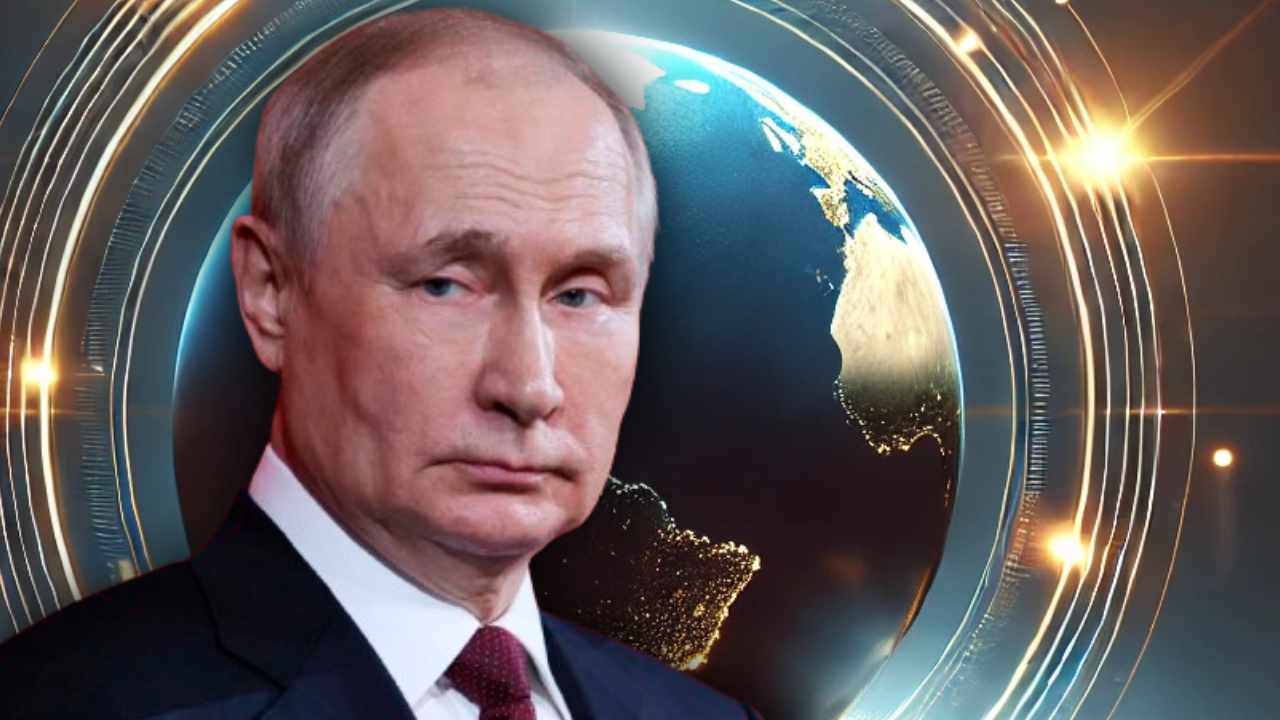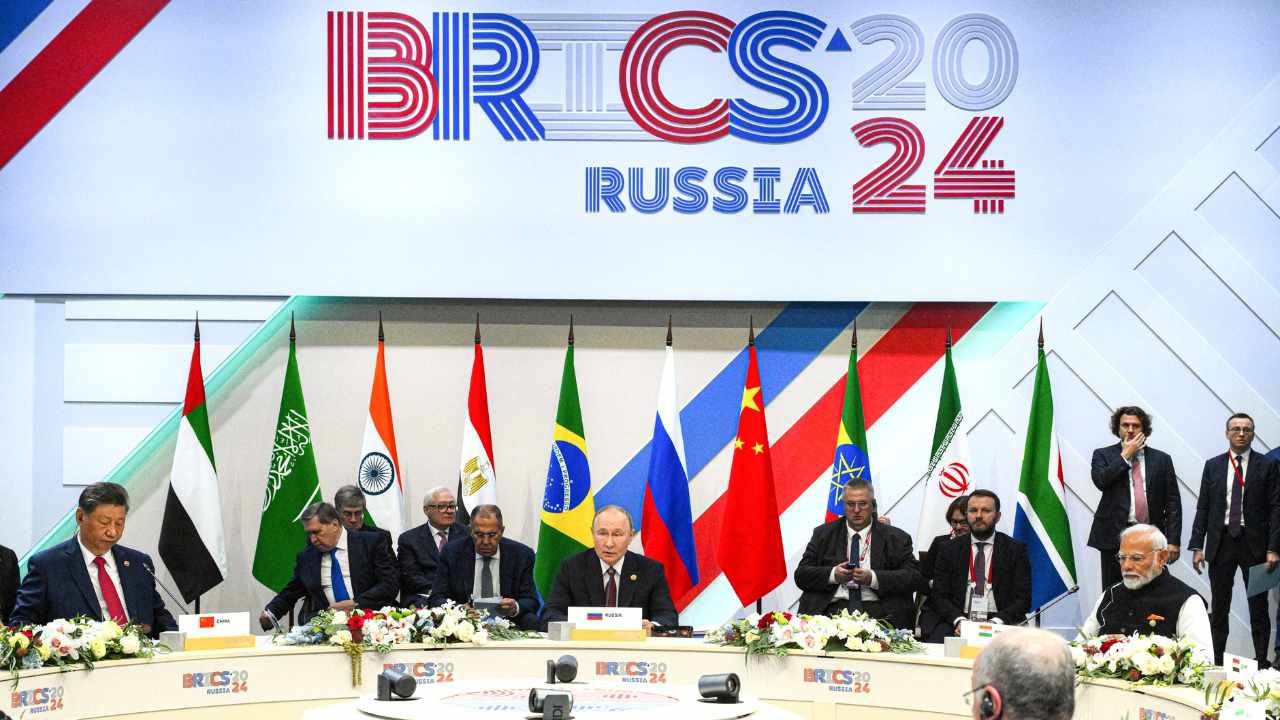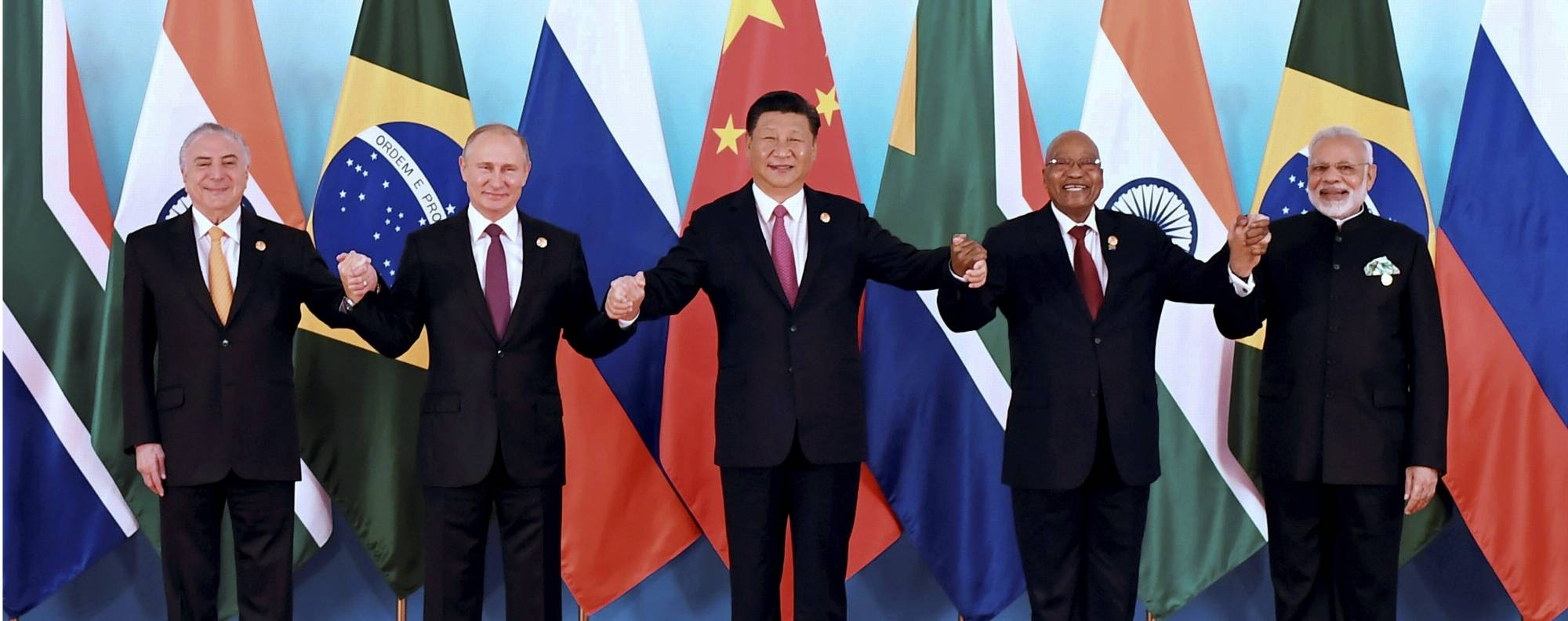With 5,255 delegates attending, the 16th BRICS Summit in Kazan focused on building a “multipolar world order” and reducing reliance on dollar-based systems.

The 16th BRICS Summit, held in Kazan, was attended by over 5,000 delegates from 36 countries, including 24 heads of state and representatives from six international organizations. The summit aimed to strengthen economic cooperation and explore alternatives to Western financial systems.
According to Tatarstan Deputy Prime Minister Shamil Gafarov, the total number of participants included 42 delegations, officials from 36 countries, and members of official delegations from 24 heads of state, six international organizations, and the BRICS Business Council.
The summit, which took place from Oct. 22-24, was significant as it marked the first meeting since BRICS expanded to include Egypt, Iran, Ethiopia, and the United Arab Emirates (UAE).
Among the attendees were Chinese President Xi Jinping and Indian Prime Minister Narendra Modi, highlighting the summit's importance in fostering cooperation among emerging economies.
The summit aimed to deepen economic cooperation and explore alternatives to Western financial systems, a topic that has gained increasing attention amid geopolitical shifts and concerns over the dollar's dominance.
While discussing the creation of alternative financial mechanisms, President Vladimir Putin emphasized that the bloc is not pursuing a separate SWIFT replacement.
The summit also addressed global challenges, including regional conflicts and the COVID-19 pandemic. In the Kazan Declaration, BRICS leaders underscored their commitment to sovereign development and highlighted the importance of respecting each member's right to choose its path.
Despite general consensus on key issues, discussions regarding further BRICS expansion revealed some members' concerns about admitting additional countries. This reflects the logistical and ideological complexities involved in such a move.
However, the summit showcased BRICS' intent to play a more substantial role on the global stage, as evident in the addition of new members and the踏み込んだ議論 over further enlargement.
Following the summit, Russia's Deputy Foreign Minister Sergey Ryabkov stated that BRICS is not conceived as an anti-Western bloc and remains open to cooperation.
Speaking at a press conference after the summit, Ryabkov emphasized that the alliance is transparent about its goals and open to engagement. He noted that Putin reiterated this stance, highlighting BRICS’ commitment to cooperation while defending its members’ interests.
The above is the detailed content of With Over 5,000 Delegates, BRICS Summit Sends a Message to the Dollar's Dominance. For more information, please follow other related articles on the PHP Chinese website!
 Russian President Putin Emphasizes Gradual Approach to BRICS Currency, Alternative to Swift in FocusOct 21, 2024 pm 04:32 PM
Russian President Putin Emphasizes Gradual Approach to BRICS Currency, Alternative to Swift in FocusOct 21, 2024 pm 04:32 PMRussian President Vladimir Putin discussed the possibility of a unified BRICS currency and efforts to create an alternative to the Swift financial messaging system during a BRICS media meeting Friday at Novo-Ogarevo, Russia.
 BRICS Attempt to Dampen the Dollar's Primacy in International Trade Could Give Bitcoin Another Massive Macro BoostOct 26, 2024 am 03:52 AM
BRICS Attempt to Dampen the Dollar's Primacy in International Trade Could Give Bitcoin Another Massive Macro BoostOct 26, 2024 am 03:52 AMBRICS is a geopolitical alliance of Brazil, Russia, India, China, and South Africa. Iran, Egypt, Ethiopia, and the United Arab Emirates were added to its ranks earlier this year.
 BRICS Summit 2022: Could Bitcoin Help Russia Bypass Western Sanctions?Oct 24, 2024 pm 06:50 PM
BRICS Summit 2022: Could Bitcoin Help Russia Bypass Western Sanctions?Oct 24, 2024 pm 06:50 PMThe 16th BRICS Summit, hosted by Russia, began on October 22 in the Russian city of Kazan. Even before the start, the event gained immense popularity
 With Over 5,000 Delegates, BRICS Summit Sends a Message to the Dollar’s DominanceOct 27, 2024 pm 12:40 PM
With Over 5,000 Delegates, BRICS Summit Sends a Message to the Dollar’s DominanceOct 27, 2024 pm 12:40 PMWith 5,255 delegates attending, the 16th BRICS Summit in Kazan focused on building a “multipolar world order” and reducing reliance on dollar-based systems.
 BRICS Powers Strengthen Resolve Amid Speculation on Trump’s 2025 ImpactNov 10, 2024 pm 07:20 PM
BRICS Powers Strengthen Resolve Amid Speculation on Trump’s 2025 ImpactNov 10, 2024 pm 07:20 PMDonald Trump’s 2025 return to the White House is unlikely to derail the economic progress of the BRICS economic bloc
 BRICS Alliance Closes Membership to the Block for 2024, Will Focus on De-Dollarization AgendaOct 25, 2024 am 03:34 AM
BRICS Alliance Closes Membership to the Block for 2024, Will Focus on De-Dollarization AgendaOct 25, 2024 am 03:34 AMMembers of the BRICS alliance have agreed to close the membership to the block for 2024. The news came amid the ongoing BRICS Summit ongoing in Kazan
 BRICS Plots to Dump the Dollar With Its Own SWIFT Alternative Targeting African CountriesJul 30, 2024 pm 03:01 PM
BRICS Plots to Dump the Dollar With Its Own SWIFT Alternative Targeting African CountriesJul 30, 2024 pm 03:01 PMAccording to a top Russian official, African countries will not achieve their development goals under the current global financial system as this would take them out of neo-colonial control.
 Former Russian PM Skeptical of Unified BRICS CurrencyAug 27, 2024 pm 03:42 PM
Former Russian PM Skeptical of Unified BRICS CurrencyAug 27, 2024 pm 03:42 PMRussia's former Prime Minister Sergey Stepashin shared his views on the idea of a BRICS common currency, stating that it is premature to discuss such a move

Hot AI Tools

Undresser.AI Undress
AI-powered app for creating realistic nude photos

AI Clothes Remover
Online AI tool for removing clothes from photos.

Undress AI Tool
Undress images for free

Clothoff.io
AI clothes remover

AI Hentai Generator
Generate AI Hentai for free.

Hot Article

Hot Tools

Dreamweaver Mac version
Visual web development tools

MantisBT
Mantis is an easy-to-deploy web-based defect tracking tool designed to aid in product defect tracking. It requires PHP, MySQL and a web server. Check out our demo and hosting services.

Notepad++7.3.1
Easy-to-use and free code editor

SAP NetWeaver Server Adapter for Eclipse
Integrate Eclipse with SAP NetWeaver application server.

SublimeText3 Mac version
God-level code editing software (SublimeText3)






